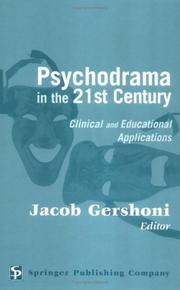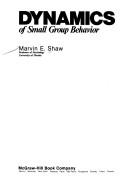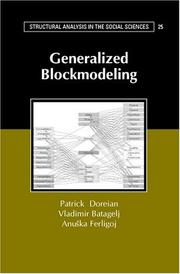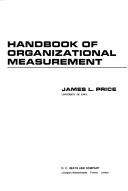Book
ISBN: 0691159173 0691159955 9780691159171 9780691159959 140084861X 1299690866 Year: 2013 Publisher: Princeton University Press
Abstract | Keywords | Export | Availability | Bookmark
 Loading...
Loading...Choose an application
- Reference Manager
- EndNote
- RefWorks (Direct export to RefWorks)
Political science and sociology increasingly rely on mathematical modeling and sophisticated data analysis, and many graduate programs in these fields now require students to take a "math camp" or a semester-long or yearlong course to acquire the necessary skills. Available textbooks are written for mathematics or economics majors, and fail to convey to students of political science and sociology the reasons for learning often-abstract mathematical concepts. A Mathematics Course for Political and Social Research fills this gap, providing both a primer for math novices in the social sciences and a handy reference for seasoned researchers. The book begins with the fundamental building blocks of mathematics and basic algebra, then goes on to cover essential subjects such as calculus in one and more than one variable, including optimization, constrained optimization, and implicit functions; linear algebra, including Markov chains and eigenvectors; and probability. It describes the intermediate steps most other textbooks leave out, features numerous exercises throughout, and grounds all concepts by illustrating their use and importance in political science and sociology. Uniquely designed and ideal for students and researchers in political science and sociology Uses practical examples from political science and sociology Features "Why Do I Care?" sections that explain why concepts are useful Includes numerous exercises Complete online solutions manual (available only to professors, email david.siegel at duke.edu, subject line "Solution Set") Selected solutions available online to students
Mathematical sociology. --- Mathematics --- Mathematik. --- Methodologie. --- Political science --- Politische Wissenschaft. --- Study and teaching (Higher) --- Methodology. --- Political aspects. --- Social aspects. --- Mathematics. --- Social sciences --- Math --- Science --- Mathematical models.
Book
ISBN: 9782200625719 2200625715 Year: 2020 Publisher: Malakoff: Armand Colin,
Abstract | Keywords | Export | Availability | Bookmark
 Loading...
Loading...Choose an application
- Reference Manager
- EndNote
- RefWorks (Direct export to RefWorks)
Nos sociétés contemporaines sont remplies de toutes sortes de chiffres : mesures de tout ordre, évaluations, statistiques, indices, estimations, etc. L'originalité de ce livre est de proposer pour la première fois une analyse globale de tous ces types de chiffres, de toutes les formations de « quantification » qui peuvent être appréhendées et comprises à l'aide d'une gamme d'outil unique . Il synthètise les travaux sur la quantification de deux traditions distinctes : ceux d'histoire sociale et culturelle sur les « mesures de la nature » (le temps, l'espace, les objets, la vie, le monde physique visible et invisible) et ceux de la sociologie historique sur les statistiques et les indicateurs sociaux.Qu'y a-t-il de commun à tous ces chiffres ? D'où viennent-ils, à quoi servent-ils et quels sont leurs effets ? Les discours sur les chiffres oscillent très souvent entre deux positions radicales: « les chiffres sont des mesures de la réalité » versus « les chiffres ne sont que des mensonges ». L'ouvrage permet de dépasser cette opposition réductrice en proposant un cadre général pour penser les chiffres.
Chiffres --- Recherche quantitative --- Statistique --- Sociologie économique. --- Mesure --- Sociologie. --- Statistics --- Mathematical sociology --- Social aspects --- Statistics - Social aspects --- Sociologie économique. --- Sciences et société.

ISBN: 1281964379 9786611964375 0826197396 9780826197399 9781281964373 0826121756 9780826121752 Year: 2003 Publisher: New York Springer Pub.
Abstract | Keywords | Export | Availability | Bookmark
 Loading...
Loading...Choose an application
- Reference Manager
- EndNote
- RefWorks (Direct export to RefWorks)
Inspired by the writings of J.L. Moreno, the contributors to this volume present a wide range of clinical and educational applications of psychodrama with various client groups, problems and settings. Part One explores the integration of psychodrama and sociometry with other therapy methods including structural family therapy, art therapy, and group therapy. Part Two describes innovative applications of action methods to different groups, such as trauma survivors, and the lesbian, gay, Bi-sexual and Transgender (LGBT) community. Applications of psychodrama in education, training and consultati
Drama --- Sociometry. --- Acting --- Drama therapy --- Dramatherapy --- Psychodrama --- Psychotherapy --- Educational tests and measurements --- Mathematical sociology --- Social interaction --- Social psychology --- Therapeutic use. --- Therapeutic use

ISBN: 0070565015 Year: 1976 Publisher: Montreal
Abstract | Keywords | Export | Availability | Bookmark
 Loading...
Loading...Choose an application
- Reference Manager
- EndNote
- RefWorks (Direct export to RefWorks)
Primary groups --- 316.45 --- Small groups --- Sociometry --- Educational tests and measurements --- Mathematical sociology --- Social interaction --- Social psychology --- Groups, Small --- Social groups --- Sociale groepen. Groepsprocessen. Kleine groepen. Interactionele groepsdynamiek --- 316.45 Sociale groepen. Groepsprocessen. Kleine groepen. Interactionele groepsdynamiek

ISBN: 0521674093 9780521674096 0521857406 9780521857406 9780511804052 0511804059 Year: 2007 Volume: 44 Publisher: New York (N.Y.): Cambridge university press,
Abstract | Keywords | Export | Availability | Bookmark
 Loading...
Loading...Choose an application
- Reference Manager
- EndNote
- RefWorks (Direct export to RefWorks)
This 2007 book provides a systematic and self-contained account of the fast-developing theory of complex social networks. Social networks are central to the understanding of most socio-economic phenomena in the modern world. The classical approach to studying them relies on a methodology that abstracts from their size and complexity. In contrast, the approach taken in this book keeps complexity at the core, whilst integrating it with the incentive considerations that are preeminent in traditional economic analysis. The treatment starts with a detailed discussion of the basic models that act as 'benchmarks' for the complex-network literature: random networks, small worlds, and scale-free networks, before studying three different forces that underlie almost all network phenomena in social contexts: diffusion, search, and play. Finally, these forces are combined into a unified framework that is brought to bear on the issue of network formation and the coevolution of agents' behaviour and their pattern of interaction.
Social networks --- Sociometry --- 302.35 --- Educational tests and measurements --- Mathematical sociology --- Social interaction --- Social psychology --- Networking, Social --- Networks, Social --- Social networking --- Social support systems --- Support systems, Social --- Interpersonal relations --- Cliques (Sociology) --- Microblogs --- Business, Economy and Management --- Economics --- Social networks. --- Sociometry.
Book
ISBN: 3407511094 Year: 1976 Publisher: Weinheim Beltz
Abstract | Keywords | Export | Availability | Bookmark
 Loading...
Loading...Choose an application
- Reference Manager
- EndNote
- RefWorks (Direct export to RefWorks)
Interaction analysis in education --- Sociometry --- Educational tests and measurements --- Mathematical sociology --- Social interaction --- Social psychology --- Analysis, Interaction (Education) --- Interaction process analysis in education --- Teacher-pupil interaction --- Observation (Educational method) --- Teacher-student relationships --- Verbal behavior --- Interaction analysis in education. --- Sociometry.
Periodical
ISSN: 23257938 Year: 1937 Publisher: Washington American Sociological Association
Abstract | Keywords | Export | Availability | Bookmark
 Loading...
Loading...Choose an application
- Reference Manager
- EndNote
- RefWorks (Direct export to RefWorks)
Sociometry --- Social psychology --- Social psychology. --- Sociometry. --- Mass psychology --- Psychology, Social --- Educational tests and measurements --- Mathematical sociology --- Social interaction --- Human ecology --- Psychology --- Social groups --- Sociology --- Sociométrie. --- Sociométrie --- Psychologie sociale. --- Sociologia. --- Psicologia social. --- Sociometria.

ISBN: 0521840856 1107140110 0511170912 0511080883 0511298048 0511584172 1280437189 0511196466 9780521840859 9780511584176 Year: 2005 Volume: 25 Publisher: Cambridge: Cambridge university press,
Abstract | Keywords | Export | Availability | Bookmark
 Loading...
Loading...Choose an application
- Reference Manager
- EndNote
- RefWorks (Direct export to RefWorks)
This book provides an integrated treatment of blockmodeling, the most frequently used technique in social network analysis. It secures its mathematical foundations and then generalizes blockmodeling for the analysis of many types of network structures. Examples are used throughout the text and include small group structures, little league baseball teams, intra-organizational networks, inter-organizational networks, baboon grooming networks, marriage ties of noble families, trust networks, signed networks, Supreme Court decisions, journal citation networks, and alliance networks. Also provided is an integrated treatment of algebraic and graph theoretic concepts for network analysis and a broad introduction to cluster analysis. These formal ideas are the foundations for the authors' proposal for direct optimizational approaches to blockmodeling which yield blockmodels that best fit the data, a measure of fit that is integral to the establishment of blockmodels, and creates the potential for many generalizations and a deductive use of blockmodeling.
Social networks --- Sociometry. --- Mathematical models. --- Sociometry --- Mathematical models --- Educational tests and measurements --- Mathematical sociology --- Social interaction --- Social psychology --- Networking, Social --- Networks, Social --- Social networking --- Social support systems --- Support systems, Social --- Interpersonal relations --- Cliques (Sociology) --- Microblogs --- Social Sciences --- Sociology
Book
ISBN: 3030515109 3030515095 Year: 2020 Publisher: Cham : Springer International Publishing : Imprint: Springer,
Abstract | Keywords | Export | Availability | Bookmark
 Loading...
Loading...Choose an application
- Reference Manager
- EndNote
- RefWorks (Direct export to RefWorks)
Modern computer power and high-precision observational data have greatly improved the reliability of meteoroid stream models. At present, scientific research calls for two kinds of models: precise ones for individual streams, and statistically averaged ones for Solar System dust distribution models. Thus, there is a wide field of study open to stream modellers. This brief describes step-by-step computer simulations of meteoroid stream formation and evolution. Detailed derivations of relevant formulae are given, along with plenty of helpful, digestible figures explaining the subtleties of the method. Each theoretical section ends with examples aimed to help readers practice and master the material. Most of the examples are based on the Geminid meteoroid stream model, which has been developed by the author in the last 30 years. The book is intended for researchers interested in meteor astronomy and mathematical modelling, and it is also accessible to physics and astrophysics students.
Astrophysics. --- Mathematical physics. --- Sociophysics. --- Econophysics. --- Theoretical Astrophysics. --- Astrophysics and Astroparticles. --- Data-driven Science, Modeling and Theory Building. --- Physical mathematics --- Physics --- Mathematical sociology --- Statistical physics --- Astronomical physics --- Astronomy --- Cosmic physics --- Economics --- Mathematics --- Statistical methods

ISBN: 0669752002 9780669752007 Year: 1972 Publisher: Lexington (Mass.): Heath,
Abstract | Keywords | Export | Availability | Bookmark
 Loading...
Loading...Choose an application
- Reference Manager
- EndNote
- RefWorks (Direct export to RefWorks)
Sociology of organization --- Organizational sociology --- Sociometry --- Research --- -Sociometry --- 65.01 --- Organization (Sociology) --- Organization theory --- Sociology of organizations --- Sociology --- Bureaucracy --- Educational tests and measurements --- Mathematical sociology --- Social interaction --- Social psychology --- Methods and methodology. Theory and practice of organization --- Sociometry. --- Research. --- 65.01 Methods and methodology. Theory and practice of organization --- Organizational research --- Organizational sociology - Research

 Search
Search Feedback
Feedback About UniCat
About UniCat  Help
Help News
News